One of the most highly anticipated electric vehicles of the year has finally arrived. Meet the all-new Hyundai Ioniq 5, a midsize SUV spearheading the South Korean brand’s recently founded Ioniq sub-brand of EVs. The angular shape, pixel-like lights, and the ultra-wide clamshell hood have largely been retained from the Concept 45 unveiled nearly two years ago.
The sharp-looking SUV has been developed to accommodate both conventional side mirrors and cameras, but the latter will be available only in certain countries due to legislation constraints. Those two-tone alloy wheels have been borrowed from the concept and measure 20 inches – the largest set ever fitted by Hyundai on a production EV.
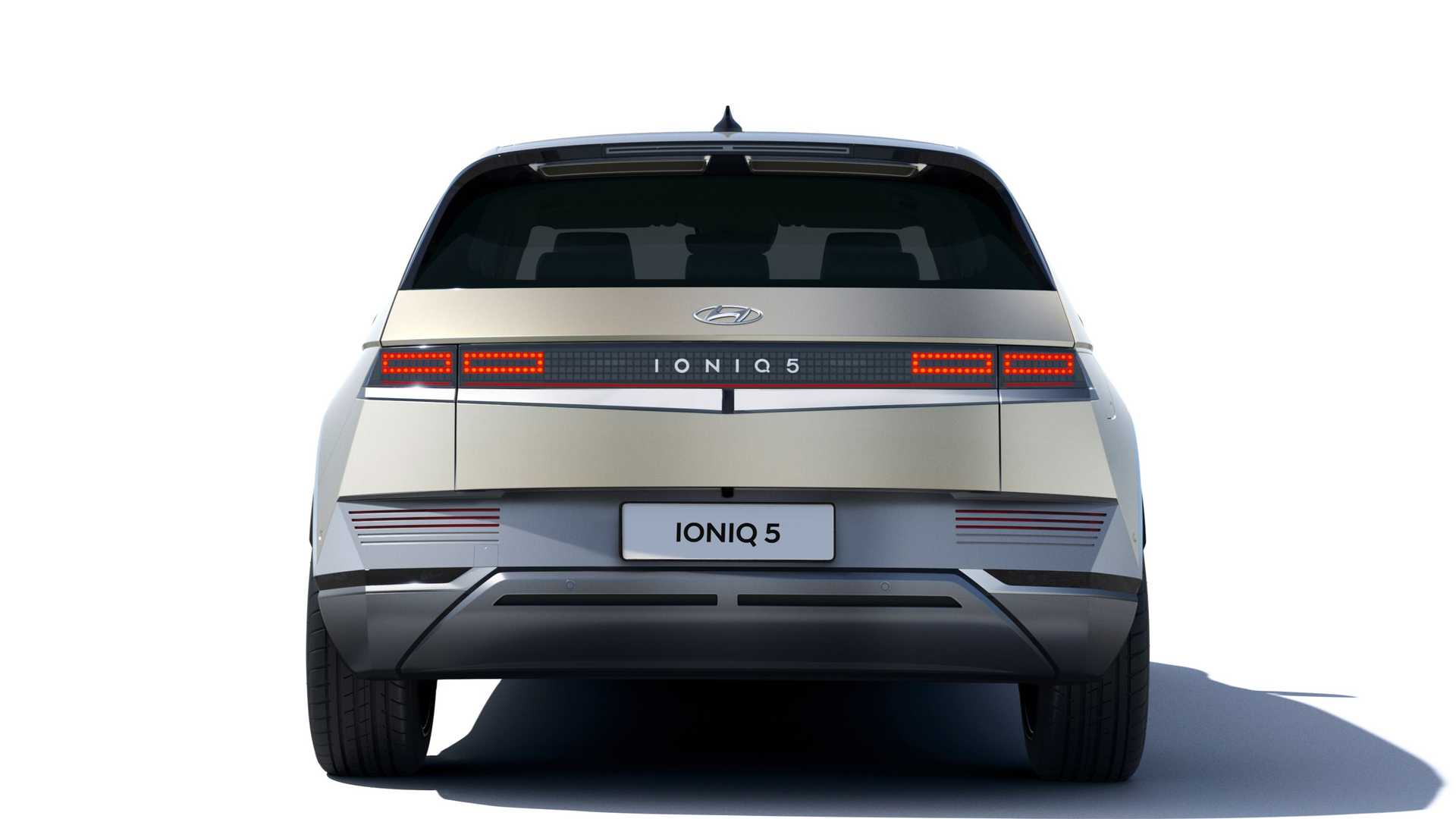
The Ioniq 5 is 182.5 inches long and yet its wheelbase measures a whopping 118.1 inches as a result of shaving off the overhangs as much as possible. With a generous distance between the axles, it’s no wonder the interior is impressively spacious, with all seats sliding back and forth. Even the center console between the driver’s seat and the front passenger seat can slide.
Making the most out of the impressive packaging, the rear trunk can 531 liters (almost 1,600 liters if the rear seats are folded) while the front trunk can accommodate an extra 57 liters (24 liters on the AWD model). Further improving practicality are the reclining front seats that go down to an almost flat level.
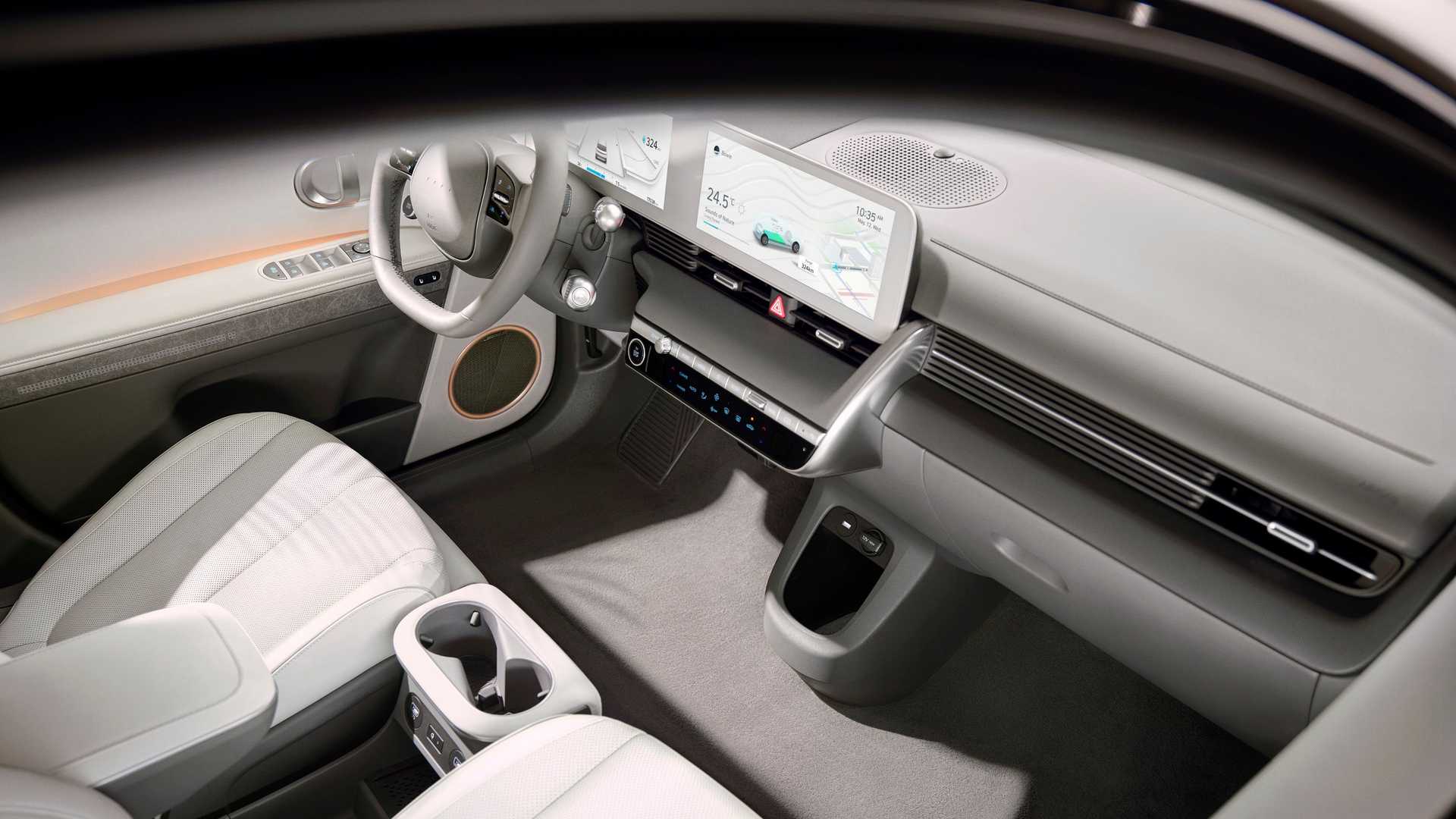
Developed on the E-GMP platform, the Ioniq 5 has a flat-floor configuration with no center tunnel to get in the way. The dashboard hosts a 12-inch digital instrument cluster and a touchscreen of the same size. There’s also a nifty head-up display with augmented reality, while a solar roof can provide extra juice to the battery.
Speaking of which, there are three batteries depending on the market: the base 58 kWh and the larger 72.6 kWh, with the US-spec Ioniq 5 featuring a 77.4-kWh setup. Hyundai will offer multiple versions of its dedicated EV, with rear- or all-wheel drive depending on whether it has a single or dual-motor setup.
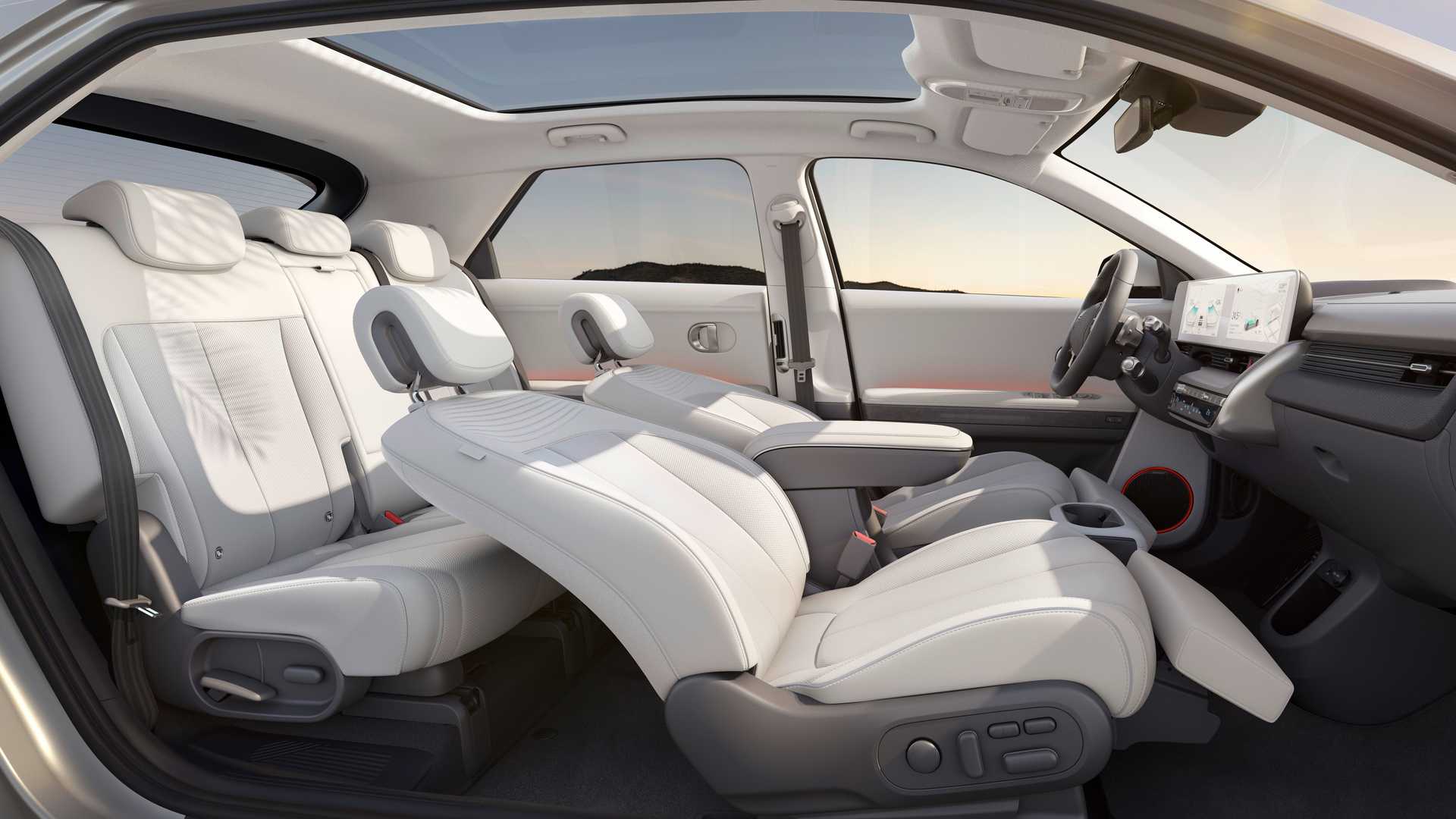
| 72.6 kWh Battery (77.4-kWh for NA) | 4WD | Power | 70 kW Front / 155 kW Rear |
| Torque | 255 Front Nm / 350 Nm Rear | ||
| 0-100 km/h | 5.2 seconds | ||
| 2WD | Power | 160kW | |
| Torque | 350 Nm | ||
| 0-100 km/h | 7.4 seconds | ||
| 58 kWh Battery | 4WD | Power | 53 kW Front/120 kW Rear |
| Torque | 255 Front/350 Nm Rear | ||
| 0-100 km/h | 6.1 seconds | ||
| 2WD | Power | 125 kW | |
| Torque | 350 Nm | ||
| 0-100 km/h | 8.5 seconds |
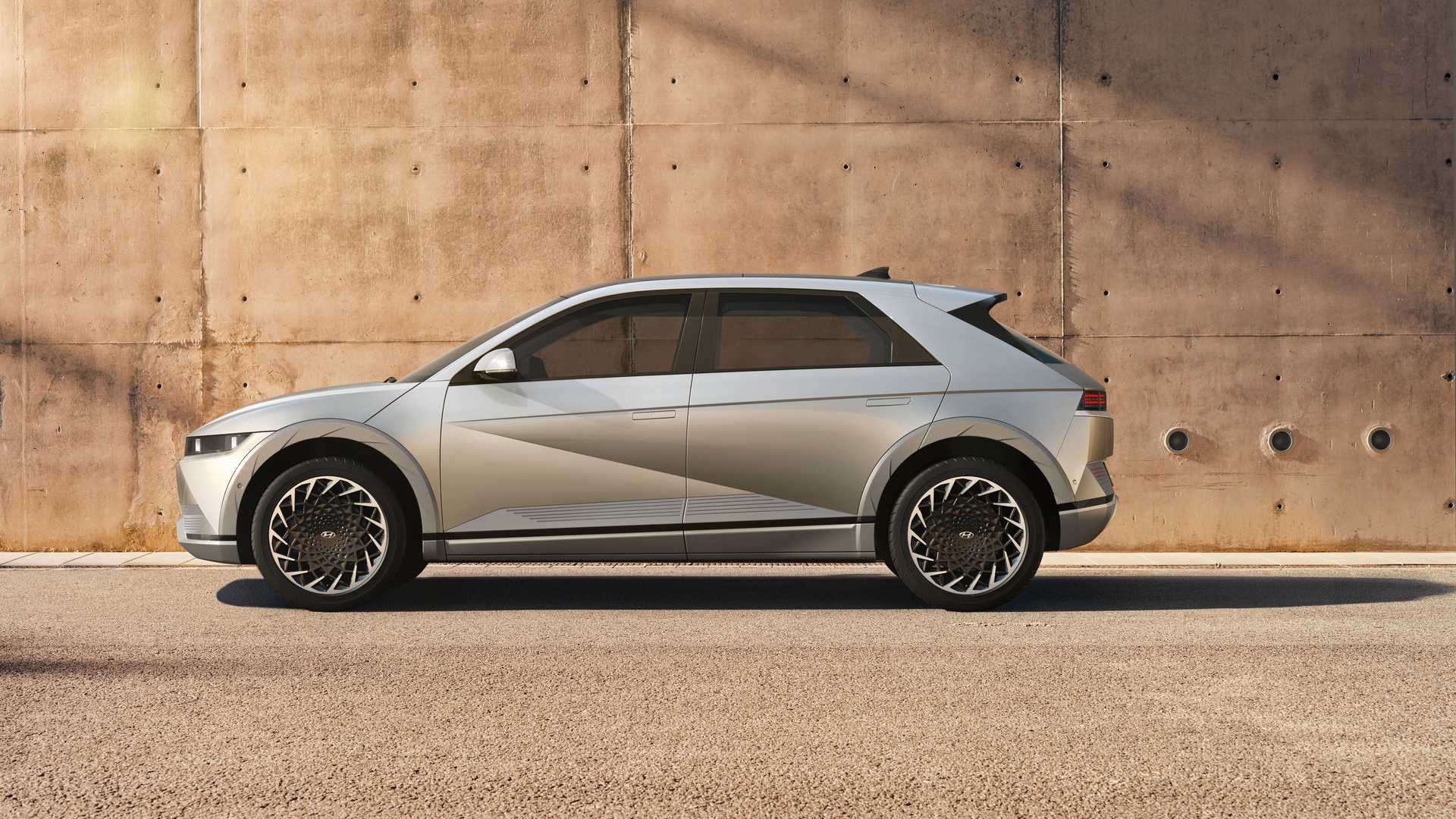
The Ioniq 5 can work with a 350-kW charger, in which case the battery can be replenished from 10% to 80% in a mere 18 minutes and will provide 100 kilometers (62 miles) of WLTP-certified range in just five minutes of charging. The RWD variant combined with the big battery promises to cover 470 to 480 kilometers (nearly 300 miles) between charges.
Owners will have the possibility to recharge electric devices as Hyundai has implemented has V2L tech, with interior and exterior ports supplying 3.6 kW of power to charge camping equipment, electric bicycles, scooters, and other items.
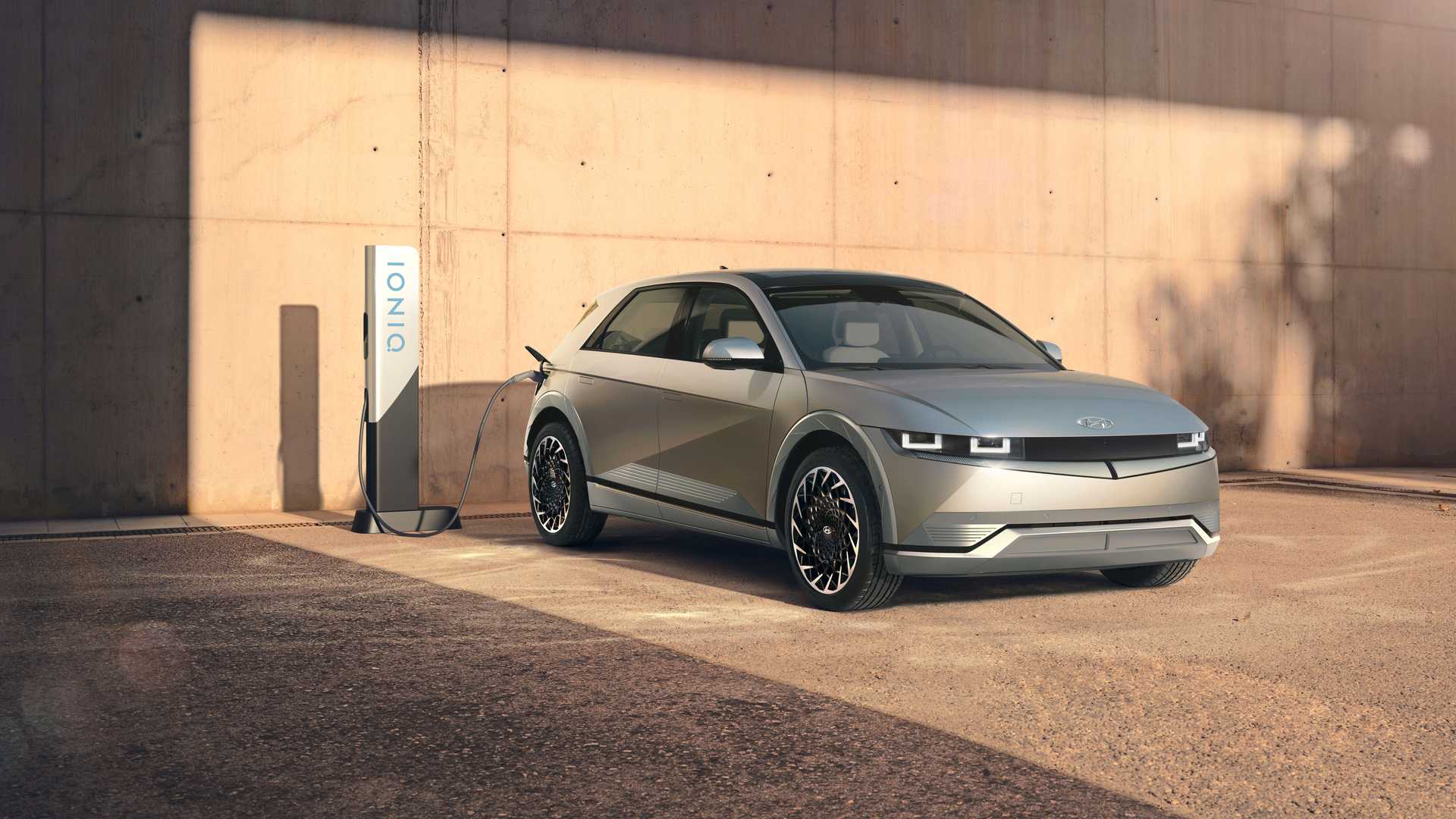
The Hyundai Ioniq 5 will hit the market later this year and will be followed by the Ioniq 6 Sedan in 2022 and the Ioniq 7 large SUV in 2014.
Source: Hyundai
